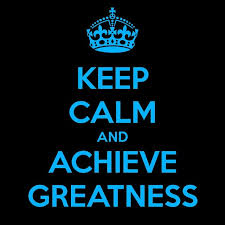
“Weakness of attitude becomes weakness of character.” – Albert Einstein
You’ve most likely heard the phrase, “Hire for attitude; you can always train and test for skills.” Hard skills for any job can usually be tested. A simple example would be for typing skills –you can measure a candidate’s keyboarding speed by administering a test. Attitude, though, is different. It cannot be objectively measured, and that is why it can be classified as a soft skill.
A 2012 Forbes article on a study of 20,000 new hires found that 46% of them failed within 18 months of being hired. Of those 89% failed because of attitudinal issues and only 11% due to a lack of skills. A more recent study by Millennium Branding (2014) showed that positive attitude (84%) was one of the top three attributes that recruiters look for.
“Attitude is a little thing that makes a big difference.” ― Winston S. Churchill
A positive attitude is very much a real thing. There is now science behind the idea that having a positive attitude makes a difference. Using EMI machines scientist are mapping the brain and observing how both negative and positive thinking impacts the brain’s functioning. Evidence indicates that positive events help the brain develop new neuro pathways, which improves learning, making people open to new ideas and feelings, and that negative thinking actually decreases cognitive functioning and can create a drop in the immune system, which makes a person susceptible to illness. Richard Boyatzis names these effects in his Intentional Change Theory and states that we either move towards a Positive Emotional Attractor (PEA) or Negative Emotional Attractor (NEA). Our natural tendency, due to our ancestry, is to move towards the negative (fight or flight). The ancient part of our brain is wired to watch out for danger and to see things in the negative. However by raising our self-awareness and managing our emotions (EQ) we can consciously move towards and maintain a PEA.
So why is all this important?
- It increases and improves productivity.
- It increases and improves workplace happiness.
- We become viewed as approachable and therefore build more effective workplace relationships.
- It creates a space that allows us to positively handle challenges or setbacks – it breeds resilience.
Our attitude defines how we approach things. There will be times when we have a bad or negative attitude and time when we have a good or positive one. Our management of these will have a significant impact on our success, not only in our careers but also our lives.
“Our life is what our thoughts make it.” ― Marcus Aurelius,
Being clear about what you’re working for is an important part of building a positive attitude and strong work ethic. If you are not sure what you are working for, it can be difficult or even impossible to fully invest in a project or in developing your skills. Here are some ideas to get you started (from Ten Soft Skills You Need. 2015, Global Courseware Inc.)…
- Take time to clarify your personal goals, both in terms of specific projects and in terms of your overall career.
- Set specific goals and then create plans to achieve them.
- Tie these goals to your day-to-day tasks and responsibilities so that you can keep them in sight.
- When working with a team, it is also vital that you outline clear group goals.
- Know what each member of the group is working for, and what the group is collectively working for.
- Find ways to consistently tie individual tasks or steps to the overarching group goals and to individual members’ personal goals.
